In recent years, there have been efforts to kindle a revival of peculiar forms of Christianity. Many factions across the spectrum have their own versions of this. You have the trad right who wish to restore Christianity politically in order to save the West from the ills of decadence, nihilism, sexual degeneracy, Muslim immigration, and ‘wokeism’. Then you have the strange ‘New Theist’ phenomenon of disenchanted secular commentators and influencers who have taken an interest in the (supposedly) Christian foundations of Western civilisation and have suddenly started performing a Christian identity as the best response to the ‘crisis of meaning’ in modern society. There are also theologians like Peter Rollins whose ‘religionless’ Christianity has become somewhat more influential within academic circles of late.
Slavoj Žižek has contributed to this discourse in the past year, making the case for ‘Christian Atheism’ in his book Christian Atheism: How to Be a Real Materialist. A quick precis of his thesis is simply that the only way to be a true atheist is through Christianity. For those familiar with Žižek’s works, he has been blowing the trumpet for his brand of Christian Atheism for a good number of years. Walking in the path of Schelling, Hegel, Feuerbach, and ‘death of God’ theologians like Thomas Altizer and the aforementioned Rollins, Žižek sees the essence of Christianity in its complete self-humanisation and self-secularisation.
In Žižek’s eyes, Christianity is fundamentally atheistic as it is the religion of the death of God. What died on the cross wasn’t a mere temporal avatar of Jehovah, but God himself, or—Žižek quoting Hegel—‘the God of the beyond itself’. When the Nazarene dying on the cross cries ‘My God, My God, why hast Thou forsaken me?’ to his Father, Žižek proclaims that this is the only moment in the entire history of religion where God disbelieves in himself and abdicates his own sovereignty. Or rather, to use the Hegelian speak, sublates himself, simultaneously raising himself to a higher stage in this very act of self-abdication; finally becoming fully human through the legacy of the Holy Spirit, whose being is transposed onto the human community. In no other religion—Islam, Buddhism, Hinduism, you name it—does this occur, only in Christianity.
Thus, what is left is the ‘egalitarian community of believers’ (whether man or woman, Greek or Jew, they are united in Christ) who are left to navigate the world on their own without a supernatural authority to guarantee their fate. ‘It is in this sense’, Žižek writes, ‘that God gives us freedom—by way of erasing itself out of the picture’. The very structure of Christianity is attuned to the radical absence of God. Because God died in history, it sustains a subjectivity that can truly embrace atheism and an ethical system that has no need for God: namely, there is no higher power who will help you, even when you need it most. If you pray, there isn’t going to be any answer. Ultimately, you are on your own and responsible for spreading the good news yourself.
Žižek identifies as a Christian Atheist because he believes that, in dialectical fashion, in order to overcome religion, you first have to go through religion—specifically Christianity. Following Christianity to its true contradictory end, you’re left with an atheism that is deeper than that of the likes of Sam Harris or Richard Dawkins. For Žižek, mere atheism (whether ‘new’ or ‘old’) is not sufficient as it still allows for the possibility of belief in a ‘big other’, even if it isn’t through religion. Intellectually, you will have atheism in a sense, but not materially, as you can still believe in a higher power that dictates from on high upon frail humans, even if you deny it empirically. The God-shaped hole can be filled up by Nature, The Science, Historical Necessity, and so on. Therefore, the only way out of the necessity for God is through him.
A serious Christian believer would reject Žižek’s approach, realizing that it tries to surreptitiously corrode Christianity from within and ultimately put human authority (Humanism) above God’s authority. Žižek’s Christian Atheism appeals not to the faithful flock of the church, but mainly to secular, educated leftists who feel burnt out by the ‘New Atheist’ wave of the 2000s, which they regard as philosophically naive and politically dubious. Unlike the ‘New’ Atheists, they see value in Christianity’s ‘dissident’ origins and are looking for a way to be devoted to a world-historical cause attached to Christian morality—which they feel can be the basis for creating a better world—without being enchained to the superstitious nonsense of the Bible or associated with the iniquities of the Christian right.
On the surface, Žižek’s narrative is attractive, engaging, and even somewhat compelling. Yes, Žižek likes his tangents and longueurs, and he has a tendency to be overly ambiguous. But love him or loathe him, Žižek always manages to be insightful and entertaining and is a valuable voice in the desolate wilderness of our public discourse. Nevertheless, there are a few problems with the ‘Christian’ essence of Žižekian Atheism. For one, and as in ordinary Christianity, there is a Manichean moralism at its heart, where the world is seen as a titanic struggle between good and evil. Even though Christian Atheists don’t believe in Christian supernaturalism, they still inherit its moralistic lens and its missionary saviour complex. The world is one big vale of tears that must be set straight, by ‘us’, the chosen ones. Christ isn’t around to redeem us—and others—from our rotten human condition, so we must do it ourselves. You have to commit to the ‘right’ cause and fight the ‘wrong’ cause.
This is clear in the last passage of Christian Atheism, where Žižek quotes from the conclusion of Alexander Blok’s poem, The Twelve, about twelve Red Army soldiers patrolling the streets during the Bolshevik revolution:
Ahead of them—with bloody banner/
Safe from any bullet’s harm/
Ahead of them—goes Jesus Christ.
Žižek then elucidates, in the closest he comes to proclaiming Christian Atheism in a positive sense rather than purely as a negative dialectical position:
This is… an image of what Christian Atheism means as a political practice. Christ is not their leader, he is just a virtual shadow whose presence signals that the twelve are not just a group of individuals pursuing their particular interests but a group of comrades acting on behalf of a Cause. There is no promise or image of heavenly bliss in this image, it is just a group of comrades acting out of utter emergency, without any assurance of what the final outcome will be—maybe they will be liquidated by the enemy, or they will simply perish in the blizzard. Even if they are not aware of it, they act in their utter dedication as if Christ is at their head. Even in our “developed” West, we recently encountered such groups which were inspecting locked-down areas for the victims of the pandemic, or looking for abandoned survivors of flooding and heat waves, or—why not—patrolling an area and searching for Russian mines on the Ukrainian front.
And the list goes on: a group of artists engaged in a collective project, a group of programmers working on an algorithm that may help in our struggle for the environment … Without thinking about it, they were and are just doing their duty. The subjective stance of the members of such a group was as far as possible from Politically Correct concerns and suspicions, they were totally foreign to the collective spirit that motivated the January 6 Trumpian mob which attacked the Congress building (a mob just performing a media spectacle), they left behind any traces of liberal individualism. They were in hell, with no God to protect them, and Christ was there.
All the groups listed by Žižek apparently embody the immanence of the deposed and transposed God, which previously would have been embodied by the socialist movement and Communist Party. What they supposedly have in common is the possession of pure and unconflicted motives. They think only of doing their ethical duty without the stains of self-interest and egoism. The existential freedom that they exercise is a product of a Damascene conversion where they have been ‘chosen’ to become devoted to a cause.
Yet, despite the diverse nature of the groups, Žižek still feels the need to distinguish the ‘authentic’ ones—who truly represent the legacy of the sublated Holy Spirit—from the fake ones such as the ‘Trumpian mob’ and the ‘Politically Correct’ inquisitors. The problem is that both the ‘Trumpian mob’ and the ‘Politically Correct’, or ‘woke’, types that Žižek lambasts have also undergone their Damascene conversions and have been ‘chosen’ in their respective causes, which they believe to be righteous. They are easily as ‘Christian’ as Žižek’s programmers and Ukrainian mine sweepers. Many votaries of the Trumpian mob are literally Christian nationalists, while it’s been said a thousand times before that the moral structure behind ‘wokeness’ very much resembles the evangelical fervour of Christianity. The very distinction Žižek makes between the authentic and the inauthentic implies that there is still an overarching, transcendent authority that can arbitrate which one of these congregations is the correct one. Is this not the old God again, in structure and function? Is this not the same fallacy of the ‘big other’ that Žižek tags onto plain old atheism?
The other major flaw in Žižek’s thesis is its Protestant exceptionalism. Whenever Žižek speaks of Christianity, he really means Protestantism, which he has called the ‘purest’ form of Christianity (in all this, he follows Hegel), not Catholicism or Orthodoxy. The idea that ‘true atheism’ can only be possible through (Protestant) Christianity implies that all other atheisms that have arisen in different cultural contexts across the world throughout history are somehow lacking or deficient—a simplistic, false, and perhaps even insulting perspective. When Žižek declares that after the death of God ‘it all depends on us’, what is really meant is ‘it all depends on us post-Protestant Christian Atheists in the West to save the world’, which leaves Žižek very vulnerable to the charge of Eurocentrism.
Similar to the New Theists, Žižek claims that only Christian Atheism ‘can save the Western legacy from its self-destruction while maintaining its self-critical edge’. This is why, at certain moments, Žižek seems to be doing a high-brow and philosophically dense version of what the likes of Jordan Peterson are doing: trying to intellectually rationalize a restoration of Christianity at a cultural level in the context of Western societies rapidly becoming post-Christian. A lot of people have played this game of promoting the view that while God doesn’t exist, we should nevertheless ‘act as though he does’, or that we need to remember the Christian ‘roots’ of our civilisation because there is something of great value in Christianity that is worth rescuing. Peterson represents the right-wing individualist version of this argument; Žižek seems to represent the left-wing collectivist version. Indeed, Žižek has stated that he is in part addressing Peterson’s followers, who, he says, want to ‘take [their] fate into [their] hands’—but ‘we, [the] authentic left, can deliver this to you better than all the conservatives.’
But in other moments, Žižek intriguingly echoes Christopher Hitchens, as when he presses the case for anti-theism, not just atheism. True materialists renounce God ‘not only insofar as he doesn’t exist, but even if he is real’. In response to the stale claim by religious apologists that without God, anything is permitted, Žižek has previously written that precisely the opposite is the case: if there is a God then any outrage and atrocity can be justified if you can claim to be an instrument of divine will.
Consequently, Žižek writes that the ‘true formula for atheism’
is not “god doesn’t exist” but “god not only doesn’t exist, he is also stupid, indifferent, and maybe outright evil”—if we do not destroy the very fiction of god from within, it is easy for this fiction to prolong its hold over us in the form of disavowal (“I know there is no god, but he is nonetheless a noble and uplifting illusion”).
Compare Hitchens, in Letters to a Young Contrarian (2001):
I’m not even an atheist so much as I am an antitheist; I not only maintain that all religions are versions of the same untruth, but I hold that the influence of churches, and the effect of religious belief, is positively harmful. Reviewing the false claims of religion I do not wish, as some sentimental agnostics affect to wish, that they were true. I do not envy believers their faith. I am relieved to think that the whole story is a sinister fairy tale; life would be miserable if what the faithful affirmed was actually the case.
Why do I say that? Well, there may be people who wish to live their lives under a cradle-to-grave divine supervision; a permanent surveillance and monitoring. But I cannot imagine anything more horrible or grotesque. It would be worse, in a way, if the supervision was benign.
(Not to mention his descriptions of (not just the Christian) God as a totalitarian tyrant and the Christian heaven as a ‘celestial North Korea’ with ‘[e]ndless praise and adoration, limitless abnegation and abjection of self’…)
These aspects of Žižek’s thought have very much been downplayed, especially in positive reviews and appraisals of Christian Atheism. What is interesting is how many of these like the ‘Christian’ part of Žižek’s Christian Atheism, but ignore the ‘atheist’ part, which forms, in fact, the most interesting elements of his book and deserves to be expanded upon. Counter to Žižek, many Christian Atheists really do want a ‘big other’ to be dependent upon as opposed to finally letting go of it.
The atheist critique of religion, from Lucretius to Marx and beyond, has always been defined by a few main points. God is made in the image of Man, not the other way around. All speculation about God as an idea is really a roundabout way of speaking about humanity. And because religion is man-made, we shouldn’t be afraid to admit that not only is it an imperfect way of understanding the universe, but that we are enslaved to our own creation—and this enslavement still continues to cause immense damage to our species.
It is also defined by a sober awareness of the sad outcome of every human life, since there will never be an unchallengeable, all-knowing, transcendent authority to guarantee our fate or happiness or impose from on high the perfect way to live or organise society for all eternity. Yet, we should develop the courage to take full responsibility for our existential freedom, since history is radically open-ended, to make the best of the only lives we will ever have. Only human beings can make history. (And, per Hitchens above—who really wants an unchallengeable, all-knowing, transcendent authority, anyway?)
One doesn’t need to ‘go through Christianity’ or be a (Protestant) ‘Christian’ Atheist to arrive at this point. Religion is an argument we as a species will continue to have. It is the argument that never dies. But Žižek’s Christian Atheism, for all of its engaging qualities, doesn’t really say anything substantive that ‘old’ atheism couldn’t say. Indeed, Žižek himself put it nicely in 2006: ‘After all the fuss about the “post-secular” return of the religious, about the limits of disenchantment and the need to rediscover the Sacred, perhaps, what we truly need is a dose of the good old atheism.’
Related reading
A reading list against the ‘New Theism’ (and an offer to debate), by Daniel James Sharp


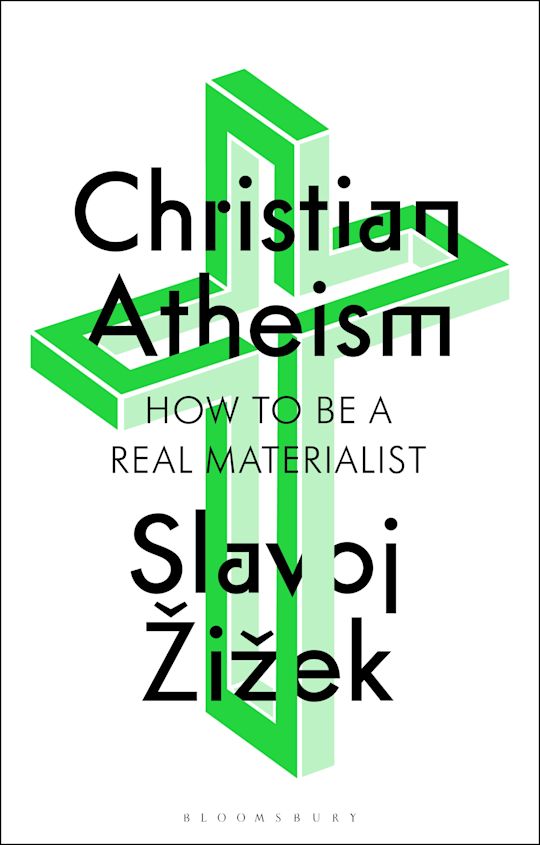

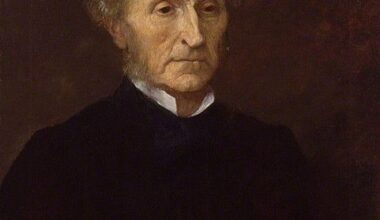

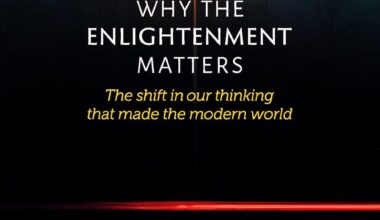
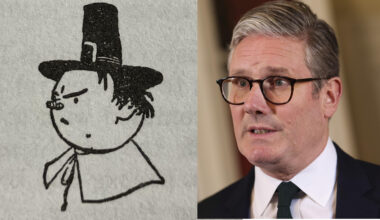
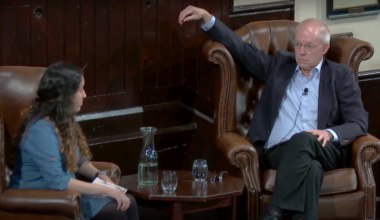
1 comment
The final comment above, from Zizek, would have saved him and all of us a fair amount of time 😉
‘After all the fuss about the “post-secular” return of the religious, about the limits of disenchantment and the need to rediscover the Sacred, perhaps, what we truly need is a dose of the good old atheism.’
The convoluted thought processes and arguments displayed above use the same flawed intellectual process as does theocracy itself.
Hitchens’ quote above was so clear and true – we needed little else. What a loss he was to ‘free thought’.
My own, largely unread book ‘The Faith Virus’ was the result my own quest once I had discovered and embraced secularism. It embraces the European Enlightenment years, now sadly lost from our children’s education and explains the true dreadful danger of faith. I am a retired old git who created a small successful business and retired early as a result. My blog is the result of post retirement questions raised and then answered by my own research.
Simplicity of thought please – not the rabbit hole of theocratic atheism.
Thank you.
Your email address will not be published. Comments are subject to our Community Guidelines. Required fields are marked *
Donate